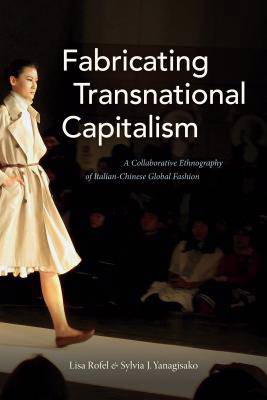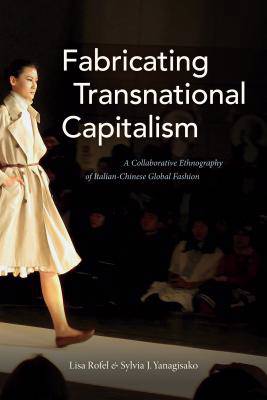
- Afhalen na 1 uur in een winkel met voorraad
- Gratis thuislevering in België vanaf € 30
- Ruim aanbod met 7 miljoen producten
- Afhalen na 1 uur in een winkel met voorraad
- Gratis thuislevering in België vanaf € 30
- Ruim aanbod met 7 miljoen producten
Zoeken
Fabricating Transnational Capitalism
A Collaborative Ethnography of Italian-Chinese Global Fashion
Lisa Rofel, Sylvia J Yanagisako
€ 64,45
+ 128 punten
Uitvoering
Omschrijving
In this innovative collaborative ethnography of Italian-Chinese ventures in the fashion industry, Lisa Rofel and Sylvia J. Yanagisako offer a new methodology for studying transnational capitalism. Drawing on their respective linguistic and regional areas of expertise, Rofel and Yanagisako show how different historical legacies of capital, labor, nation, and kinship are crucial in the formation of global capitalism. Focusing on how Italian fashion is manufactured, distributed, and marketed by Italian-Chinese ventures and how their relationships have been complicated by China's emergence as a market for luxury goods, the authors illuminate the often-overlooked processes that produce transnational capitalism--including privatization, negotiation of labor value, rearrangement of accumulation, reconfiguration of kinship, and outsourcing of inequality. In so doing, Fabricating Transnational Capitalism reveals the crucial role of the state and the shifting power relations between nations in shaping the ideas and practices of the Italian and Chinese partners.
Specificaties
Betrokkenen
- Auteur(s):
- Uitgeverij:
Inhoud
- Aantal bladzijden:
- 392
- Taal:
- Engels
- Reeks:
Eigenschappen
- Productcode (EAN):
- 9781478000457
- Verschijningsdatum:
- 11/01/2019
- Uitvoering:
- Paperback
- Formaat:
- Trade paperback (VS)
- Afmetingen:
- 152 mm x 229 mm
- Gewicht:
- 544 g

Alleen bij Standaard Boekhandel
+ 128 punten op je klantenkaart van Standaard Boekhandel
Beoordelingen
We publiceren alleen reviews die voldoen aan de voorwaarden voor reviews. Bekijk onze voorwaarden voor reviews.











